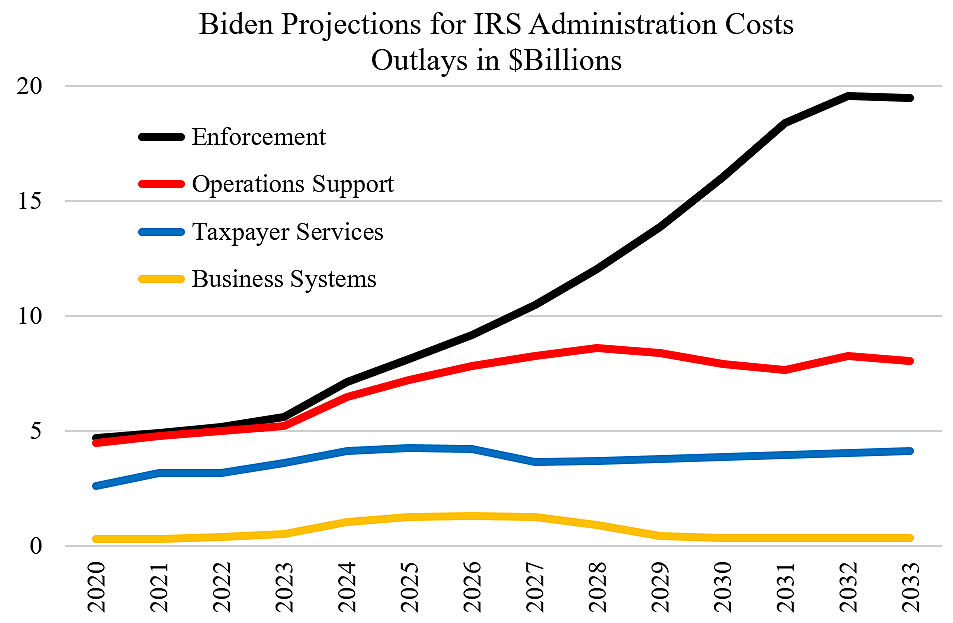The Inflation Reduction Act of 2022 ballooned the Internal Revenue Service (IRS) budget, with the bulk of new spending aimed at tougher enforcement. The law boosted IRS spending by $79 billion over coming years, which will double the agency’s budget by 2031 and grow its workforce by tens of thousands.
The IRS has published a Strategic Operating Plan to allocate all the new cash. Of the $79 billion increase, $45.6 billion will go for tougher enforcement, $25.3 billion for operations support, $4.8 billion for business systems (computers), and $3.2 billion for taxpayer services.
The IRS does need better computers and taxpayer services, as Joseph Bishop‐Henchman discusses in his new Cato study. Anyone calling the IRS for help or wanting to correct an IRS error knows that the agency’s “taxpayer services” are a mess.
However, the huge expansion of enforcement is a mistake. The latest IRS “tax gap” estimate shows that tax cheating is not increasing, but rather has dipped as a percent of GDP. Furthermore, Americans are quite honest on their taxes with about half the rate of cheating as the Europeans. And finally, more enforcement equals less civil liberties.
The chart shows President Biden’s budget projections for the four main parts of IRS administration. Enforcement spending is expected to almost quadruple from $5.2 billion in 2022 to $19.5 billion in 2033. The figures include the IRS base spending plus the added $79 billion. The data are nominal outlays from Table 25–1 here.

The Biden administration projects that spending on taxpayer services, business systems, and operations support will rise for a number of years then peak and start falling. But enforcement is projected to rocket upwards to 2032 before levelling out.
However, the enforcement rocket will likely come down to earth. Republicans are generally against the big increases and will work to reduce them. Even if the 2022 law remains in place, the GOP can work to partly offset enforcement spending by reducing the base budget.
By the way, the IRS Strategic Operating Plan includes some good ideas for aiding the public in filing taxes and interacting with the agency. But these may not be achieved if soaring enforcement spending squeezes out all other priorities.
IRS administrative costs could be vastly reduced if Congress simplified the tax code. But tax reform or not, Bishop‐Henchman urges the IRS to rethink its biases of enforcement‐before‐service and guilty‐until‐proven‐innocent. He proposes 10 specific reforms to start moving the federal tax agency in a citizen‐friendly direction.
Data Note: The main components of IRS administrative spending are included in the chart. But Table 25–1 has a few hundred million in additional annual spending on central fiscal operations in various line items. Also, these figures do not include the massive costs of IRS spending on refundable tax credits and other subsidies.
Themes: